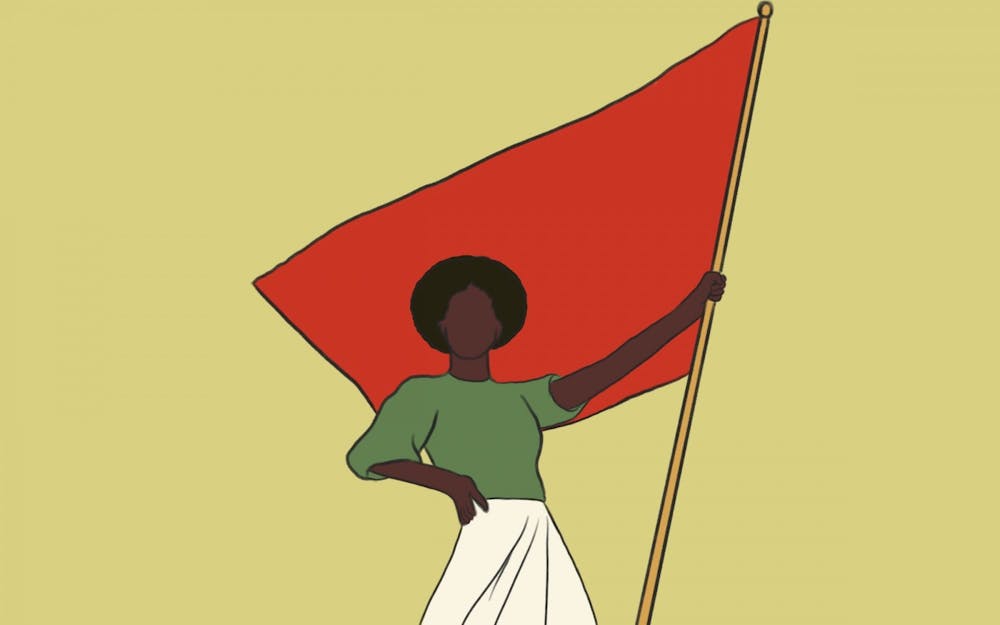It is an injustice and an absurdity to label a 74-year-old woman who lives in Cuba a domestic terrorist. But that’s what the FBI did to Assata Shakur.
Shakur, a former Black Panther and civil rights activist was, in my opinion, wrongly convicted of murdering a New Jersey state trooper in 1977 and given a life sentence.
I say she was wrongly convicted because there’s evidence she wasn’t given a fair trial, with jurors expressing prejudice against her before the trial started and materials related to her case being seized by the New York City police. In her autobiography, she consistently referred to her trial as a “legal lynching.”
But her story doesn’t end there. In 1979, Shakur escaped from prison and fled to Cuba where she was granted political asylum.
Shakur remains in Cuba to this day — she also remains on the FBI’s Most Wanted Terrorists list, being the first woman ever listed. There’s a $1 million reward for information leading to her arrest.
How can the word “terrorism” mean anything at all when it’s applied to both Shakur, someone wrongfully convicted, and people like Osama bin Laden? It would seem the American government is simply using the word in an attempt to delegitimize Shakur’s socialist ideals of economic justice and equality.
The name “Assata” means “she who struggles.” Her story is important for several reasons, the first being that you probably didn’t learn about her in history class. I certainly didn’t, nor did I learn about numerous other Black women involved in the civil rights struggle beyond Rosa Parks.
But more importantly than that, I’d like to defend Shakur and other radical women who have been unfairly demonized by the government and the press for their political views.
“Only a fool lets somebody else tell him who his enemy is,” Shakur wrote in her book “Assata: An Autobiography.”
We’ve been duped into thinking Black radicals are our enemies.
Take the Black Panther Party, for example, a former Marxist-Leninist organization dedicated to uplifting the Black community. While Shakur was a member, she was involved with their Free Breakfast for Children program and helped provide free medical assistance for Black people who couldn’t afford healthcare.
But the BPP is not celebrated for this. Instead the Panthers are dismissed and disparaged as violent agitators because of their insistence that Black Americans also have second amendment rights. So often white people with guns are simply portrayed as law-abiding citizens, but if Black people exercise their rights, well, they must be violent criminals.
During the Cold War, the only thing that terrified the U.S. government more than a communist was a Black communist. Activist Angela Davis, for example, was fired by UCLA for being a member of the Communist Party USA, though she was reinstated after public outcry. Like Shakur, Davis was also later charged with murder, but she was acquitted.
The repression of Black communists during the Cold War was staggering — their lives were ruined, their civil liberties were suspended and their influence on public life was crushed.
In 1968, Charlene Mitchell, a member of the Communist Party USA, became the first Black woman to run for president of the United States. You probably haven’t heard of her, and most of America wouldn’t have known about her in 1968 either because she was only on the ballot in two states due to anti-communist election laws. Some democracy!
Shakur, Davis and Mitchell are just three examples of Black women who bravely tried to help the most oppressed people in our society and as a result were met with the most brutal repression. Shakur languishes in Cuba, Mitchell remains in obscurity — Davis alone managed to remain fairly well known, but only after she was subjected to an 18 month jail sentence for crimes she didn’t commit.
Their stories, and those of other women in the civil rights movement must be told, especially the brave radicals who risked everything for liberation. Shakur is not a terrorist, but a revolutionary who struggled to create a better future for her people. We must see her vision through.
Jared Quigg (he/him) is a sophomore studying journalism and political science.




